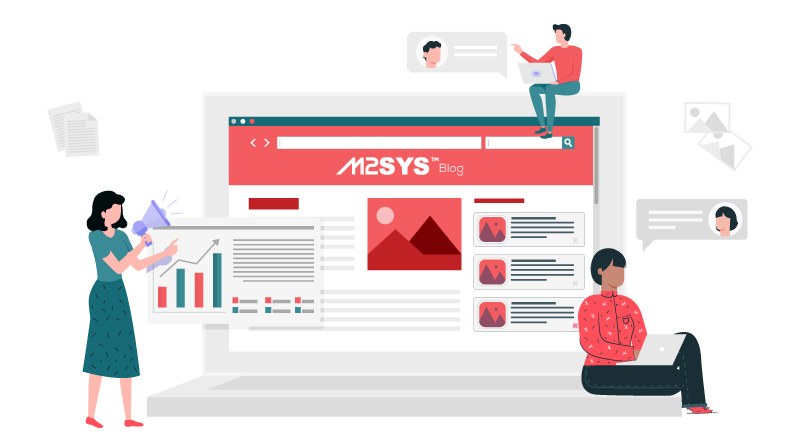Outsourcing Customer Service: The Good, the Bad, and is There an Ugly?
With the world economy still reeling from the impact of COVID-19, businesses are increasingly looking for ways to streamline operations. Outsourcing is one such method that is becoming increasingly popular.
While the concept isn’t new, the implementation of outsourcing across a wide scale is. In 2019, 59% of small businesses outsourced some of their processes. Many large corporates were also investigating the possibility, but with less enthusiasm.
Then, of course, 2020 and the pandemic era dawned. Today, remote working is the norm. Companies have adapted to having their employees outside of their direct line of sight. As a result, it’s a lot simpler now to consider outsourcing various functions to a third-party provider.
In this post, we’ll look at one aspect of outsourcing that most companies don’t consider – their help desk. We’ll examine the pros and cons of doing so to help you determine if this might be the right option for your business.
How Does Help Desk Outsourcing Work?
You’d find a reputable provider with similar service goals to your own. They’d consult with you to determine the level of support that you need. You may select any, or a combination of, the following channels:
- Call center: For the client that wishes to speak to a human being and receive empathetic support.
- Instant chat: Here, you may use a combination of a bot for simple queries and human service for more complicated issues.
- Emails: Some clients prefer to phrase their requests and replies carefully. It is for these clients that email communications are handy.
- Social media: Didn’t think social media was a support platform? Think again. 64% of buyers use what they see on social media to reinforce their decision. Your firm cannot afford to ignore customer comments, questions, and complaints here.
As social media became a platform for promoting brands and getting fast feedback from customers, influencer marketing became very popular in that case. People trust influencers and choose the products that are recommended from them, so you can directly know what customers think about certain products. By the way, if you are interested in that, you can find influencers by scraping Google and find those who will be appropriate for your requirements.
The BPO provider you choose should work with you to set up your specialist team and train them in your product and company systems.
When the team is ready, the help channels will launch. If you partner with the right company, your clients won’t even notice the changeover. Until, that is, that they begin to realize that service is better.

The Benefits of Outsourcing Your Client Help Desk
Companies choose to hire third-party providers for a host of various reasons. Let’s look at what these are.
Cost Reduction
The average medium-sized company will require at least four full-time consultants to man the lines. With the federal minimum wage set to increase to $15 an hour, a standard 40-hour workweek will cost your business $2,400 per consultant per month.
Multiply that by four, and add in payments for overtime and allowances for annual and sick leave, and the figure rises steadily. Then add on the cost of training, equipping, and housing the team, and it’s easy to see why so many businesses choose a third-party provider instead.
Scalability
How long does it take your company to find the perfect candidate for a job? If you’re lucky, you’re looking at a few weeks at the very least. Then there’s training and onboarding and the trial period to see how well the employee works.
It’s a standard part of doing business, but it can hurt you when you need to scale up operations in a hurry. Say, for example, that you’ve launched a new game and it unexpectedly reached the top spot.
Do you have weeks to wait before providing your clients the service they deserve? How many will you lose while you’re getting prepared?
Partnering with a third-party makes it simpler to scale up or down as you need to. Your contract should allow for some flexibility, and the provider will have some excess capacity built-in for just such an occasion.
Professional Consultants
The primary advantage is that you acquire the skills you need without spending a cent on training. Service companies excel at finding the most promising new talent with a knack for communication.
They train them up so that they’re able to deliver outstanding service. The in-depth teaching goes beyond being nice to a client and extends towards building a relationship. The team demonstrates empathy and uses positive language to ensure that the client has the best possible experience.
Access to Multi-Lingual Consultants
Do you wish to expand your business into a new marketplace? Being able to speak the language gives you a significant edge over your competitors. Hiring service specialists with multi-lingual capabilities can significantly increase competitive advantage.
No Infrastructural Outlay or Maintenance
The company that you partner with is responsible for all the expenses related to infrastructure. They have to equip and house their employees, as well as to conduct regular infrastructural maintenance.
Improved Productivity
Employees in the offices can get their jobs done without interruption from support calls. This improves productivity and employee satisfaction.
Increased Customer Satisfaction
By providing your clients with one point of call for all their queries, you make it simpler for them to contact support. They’ll also appreciate the professional customer service they receive from your help desk.

The Cons of Outsourcing Your Help Desk
As with any business decision, we have to weigh both the pros and cons. In this case, you as the business lose primary control over your call center. If you partner with the correct provider, they may allow you to have some say in the team members selected for your needs.
Still, however, you have to acknowledge that you won’t be driving that team. Good service companies provide you, the client, with all the statistics you require to monitor operations. They’ll also ensure that you have access to the complete customer interaction record for quality control exercises.
The other downside is that you may not get what you think. While the company is courting you, they’ll promise the earth. Whether or not they will follow through is a different story. Carefully researching any potential partner will help you to steer clear of less than stellar operators.
How to Find the Correct Firm to Partner With
A quick Google search will reveal a long list of candidates. Narrowing that list down will entail some careful research. Look at how long the company has been in business, and what ratings they have online.
Do they have the necessary skills that your business requires? Are they transparent about their processes and pricing? Will you have access to call recordings and other vital information to monitor their performance?
When you’ve narrowed down the competition, the initial consultation is your final checkpoint. Note how the agent behaves. Are they interested in learning more about your business, or are they trying to push a package onto you?
A reputable firm will want to tailor a package that works for you. They’ll wish to receive details before they start to offer you options. They’ll also be interested in your opinions and allow you some control over your team’s construction.
When is it Necessary to Partner With a Third-Party Provider?
This is a question that only you can answer. As soon as calls from clients begin to be problematic, it might be time to consider getting assistance. What do we mean by problematic?
- The switchboard is unable to cope with the influx
- An excessive number of dropped calls
- Clients need to be passed to whoever is available to take a message
- Employees continually needing to use the “I’m sorry, you’ve come through to the wrong department” excuse.
You get the idea.
Final Notes
Outsourcers save businesses billions every year by providing flexible, cost-effective access to premium skills. Companies are increasingly turning to these providers to help manage costs and improve the customer experience.
An outsourced help desk might well prove a wise investment for a quickly growing concern. The right partner can help you to build a solid relationship with your clients and provide crucial support. With the wrong partner, however, things could get ugly quickly.











